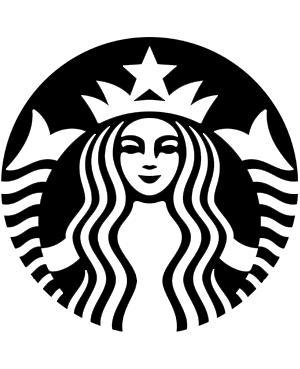Purpose
Tone of Voice
What mood and emotions do you want to convey? See the attributes that influence the words a brand chooses and how they are expressed.
Straightforward, inclusive, thoughtful, and spirited
When crafting their tone of voice, Airbnb considered how it would sound in all scenarios, including error messages and account suspension notifications. They landed on four principles that would allow them to flex one over another depending on the situation:
- Inclusive for sensitive topics, like discrimination on their platform.
- Straightforward for when needing to be clear about policy changes.
- Thoughtful for stressful situations where they need to anticipate and meet people's needs.
- Spirited messaging to inspire people who are thinking about getting away.
Friendly, passionate, and cleverly simple
To reduce the fear people have of technology, Apple focuses on making their tone friendly and inviting. They avoid using industry jargon, and it wasn't uncommon for Steve Jobs to describe Apple products as: “amazingly zippy,” “so good, you'll want to lick them,” and “awesome.” It was this passion, mixed with clever and simple messaging, like the iPod's '1,000 songs in your pocket' and the MacBook's 'Light. Years ahead.' that makes Apple approachable and relatable to their audience.
Endearing, engaging, and enthusiastic
With a goal to always make people smile, Chick-fil-A speaks with a tone that makes it sound like they are smiling themselves. They tell jokes in an affectionate and playful way that never come across as mean-spirited. In a response to a teacher's complaint about the Chick-fil-A's cows misspelling of words, founder Truett Cathy simply replied with this: "We’re sorry, but Cows can’t spell. It’s just a joke. Maybe you could use it as an object lesson to help kids learn the right way to spell. Thanks for what you do!”
Conversational, friendly, and respectful
With a global audience in mind, Google looks to craft their voice so it is clear, precise, and unambiguous. However, they don't want to come off cold or unnatural. Instead, they try to "sound like a knowledgeable friend who understands" the user.
Playful, energetic, inclusive, and human
By infusing excitement and optimism into their communications, LEGO encourages their customers to explore, build, and create new worlds using their imaginations. Their goal is to create an atmosphere filled with limitless possibilities where people are free to explore and discover new things. To do this, they created a tone that is:
- Playfully humorous, but not silly and never boring
- Energetic and active
- Respectful, avoiding anything that could cause controversy like religion or politics
- Encouraging, but never condescending or patronizing
- Inclusive and intuitive, avoiding gender stereotypes
- Human and authentic, not childish
- Relevant and contemporary, avoiding fads and trends
Bold, informal, and entertaining
From their social media posts to cease-and-desist letters, Netflix crafts a tone that is meant to mirror the same emotions that their audience feels when watching TV: They're relaxed, not in a serious mood, and want to be entertained and surprised. Using natural language, they look to relate to their audience on a fan-to-fan level by following these guidelines:
- Don't promote, entertain.
- Stand out by taking risks.
- Don't just clip out the show, build out the world.
Joyful, passionate, and inspirational
As Founder Yvon Chouinard best describes it, "Patagonia's image is a human voice. It expresses the joy of people who love the world, who are passionate about their beliefs, and who want to influence the future. It is not processed; it won't compromise its humanity. This means it will offend, and it will inspire."
And whether they are writing personal stories that illustrate their values, argue ideas, or promote a cause; or descriptive copy that sells products, their style remains simple and focused: Be accurate, avoid appealing to vanity, greed, or guilt, and write as though they are the customers.
Warm, relaxed, and refined
Always authentic and unscripted, conversations should also be natural to the personality of each Lady and Gentleman. Interactions can be informal but staff should always remain articulate, elegant, and courteous. Phrases like 'High five,' 'huh,' and 'wassup' have been and will always continue to be unacceptable.
Friendly, smart, genuine, and bold
At Southwest, when speaking, they want it to sound like they're smiling. When making a joke, they make them clever and fun using insightful observations. When connecting with people, they are casual, real, and relatable. And lastly, they always dare to do things differently by "giving people something to think about, to smile about, and to remember."
Expressive (friendly & joyful) and functional (helpful & clear)
To keep things fresh, relevant, and interesting, Starbucks crafts a tone of voice that:
- Makes things easy to understand,
- Makes customers smile, and
- Makes every word count.
Fun, relaxed, and not too serious
The people of Trader Joe's are storytellers, not salespeople. Instead of focusing on prices and stock photography, they invite their audience on a fun and educational adventure filled with interesting facts, exciting sensory details, jokes, and funny pop-culture references.
Their laid-back voice deliberately avoids the use of commands like 'Buy this!' or 'Shop now.' Rather, they evoke a worry-free attitude that says: "We're gonna be around for a long time. If you miss out on this bargain, there'll be another."
Trader Joe's is also not afraid to use a large vocabulary because they respect their audience's intelligence and never speak down to them. They aim to find a balance between being clever and informative without ever sounding stuck-up or snooty. Just see how they tell the story and history of their seasonal Bûche de Noël ice cream.
Spontaneous, quirky, and corny
From surprising customers with gifts to having an orangutan be the star of their commercials, Umpqua Bank looks for ways to bring surprises into their customers' lives. By infusing fun and humor into a serious industry, they create an approachable and engaging experience. As former CEO Ray Davis explains, "We don't worry about being corny, quirky, and spontaneous. In fact, I think all that helps build our brand because everybody remembers it when you do something nice, even if it's corny...We're corny, and people have fun with it. We get noticed, and we get remembered."
Warm, playful, and witty
For Zappos, it's all about having fun, not taking yourself too seriously, and above all else: Making people happy. With clever lines like "shoes: now conveniently sold in pairs" and emails always ending in "With love, the Zappos Customer Loyalty Team," they are always trying crack a smile.
Read Zappos' welcome email from 2012.














